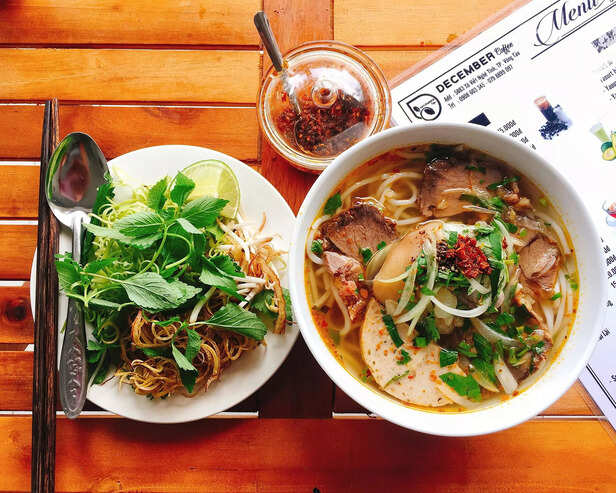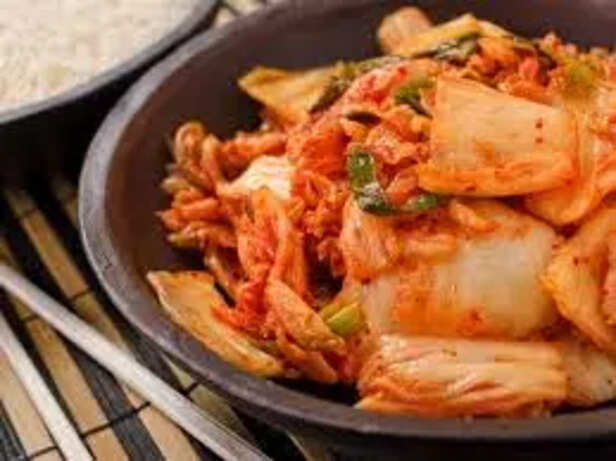Why Koreans Sell Their Culture as Premium While Indians Sell Theirs at a Discount
Riya Kumari | Feb 11, 2025, 20:18 IST
Korea turned kimchi, K-pop, and hanboks into an exclusive club where outsiders have to earn their way in. Meanwhile, we took yoga, Ayurveda, classical arts, and basically threw them into a global garage sale—no price tag, no ownership, just “please take this, we swear it’s cool!” It’s not that our culture isn’t valuable. It’s that we don’t treat it like it is. And if you don’t respect your own legacy, someone else will slap a foreign name on it and sell it back to you for ten times the price.
Culture is like an heirloom—priceless when cherished, worthless when neglected. Some protect theirs like a family secret, passing it down with pride, ensuring its value grows. Others? They leave it outside, unguarded, until someone else picks it up, polishes it, and sells it back to them—at a premium. That’s exactly what’s happening to us.
1. Branding a Culture: The Art of Knowing Your Worth

Picture this: Two restaurants open on the same street. One proudly serves its grandmother’s secret recipe, refuses to alter the flavors, and charges a premium. The other waters everything down to “suit everyone’s palate” and offers Buy 1 Get 1 Free deals. Guess which one builds a legacy?
Culture works the same way. Some countries brand their heritage like a luxury label—exclusive, aspirational, untouchable unless you pay the price. Others? They throw it into the global clearance bin. And let’s be honest: we’ve been running a cultural discount sale for decades.
2. The Business of Cultural Pride

Let’s talk about Korea. Not the “Oppa Saranghae” fever that has us eating instant ramen like it’s a personality trait, but the sheer precision with which they have packaged their culture into an empire. From K-pop to K-dramas, traditional hanboks to even the way they eat their food—everything is intentional, carefully marketed, and fiercely protected. You will never see a Korean artist giving away their culture for the sake of “appeal.” If you want in, you pay. Financially or emotionally, but you pay.
It’s no accident that BTS fans will shell out their life savings for a photocard, or that Korea has made kimchi a UNESCO heritage symbol. K-beauty never diluted itself to fit global beauty standards. Instead, it set new standards. Now, we have millions following a 10-step Korean skincare routine like it’s a religion—because they made it aspirational, not just available. They know their worth. They make you crave their culture without diluting it. Meanwhile, what do we do? We take yoga, Ayurveda, classical dance forms, and hand them out like free samples at a supermarket. “Here, take it! No need to credit us, just call it a new wellness trend!”
3. Selling Out vs. Selling Smart

The thing is, selling isn’t the problem. Selling cheap is. The French don’t beg people to love baguettes. The Japanese don’t water down sushi to make it more “global.” They make the world meet them where they are. They brand their culture as aspirational.
And then there’s us, watching overpriced “turmeric lattes” take over coffee menus while calling haldi doodh outdated. We let outsiders own our culture while we undervalue it. The West repackages our traditions, stamps a fancy name on them, and suddenly, it’s “trendy.” We, on the other hand, rebrand ourselves to be “relatable” instead of making the world relate to us.
4. Government-Backed Cultural Investment

Korea’s government understood something we still don’t: culture is an industry. In 1994, they literally said, "One blockbuster film is worth selling a million Hyundai cars." That wasn’t just talk—they poured billions into supporting music, cinema, and cultural exports. They gave tax breaks to businesses that promoted Korean identity.
The result? Today, the Hallyu wave contributes $12 billion+ annually to Korea’s economy. That’s $1 billion a month. Meanwhile, we’re still debating whether classical dance forms can go viral on reels.
5. They Gatekept the Right Things

Ever noticed how you’ll struggle to find real kimchi in a random supermarket, but turmeric lattes are everywhere? That’s because Korea protects what is authentically theirs. You can’t just make kimchi and sell it as “Korean” without approval. They literally fought to get it UNESCO heritage status. The government monitors how traditional Korean food is represented globally. They ensure foreign investors partner with Korean businesses, so profits stay within Korea.
Meanwhile, we let the West take yoga, slap a price tag on it, and now people are paying $200 for “Yoga” while thinking sanskrit mantras are a vibe.
6. Protect It or Watch It Be Stolen

Here’s the hard truth: If you don’t protect your culture, someone else will claim it. Korea, Japan, Italy—these places aren’t just known for their food, music, or art. They have successfully positioned their culture as premium, exclusive, and worth every penny. Selling isn’t the problem. Selling cheap is.
Japan never changed sushi to make it palatable for the world. The French didn’t tweak their wines to be “less intimidating.” Instead, they positioned their culture as a premium experience. But us? We rename haldi as “golden milk” for a global audience but mock our own parents for drinking it. We let others own our culture because we never took ownership ourselves.
So the next time we roll our eyes at foreigners profiting off of Indian culture, maybe we should ask ourselves: Did we sell too cheap, or did they just buy smarter?
1. Branding a Culture: The Art of Knowing Your Worth

Ramen
( Image credit : Pexels )
Picture this: Two restaurants open on the same street. One proudly serves its grandmother’s secret recipe, refuses to alter the flavors, and charges a premium. The other waters everything down to “suit everyone’s palate” and offers Buy 1 Get 1 Free deals. Guess which one builds a legacy?
Culture works the same way. Some countries brand their heritage like a luxury label—exclusive, aspirational, untouchable unless you pay the price. Others? They throw it into the global clearance bin. And let’s be honest: we’ve been running a cultural discount sale for decades.
2. The Business of Cultural Pride

K pop
( Image credit : Times Life Bureau )
Let’s talk about Korea. Not the “Oppa Saranghae” fever that has us eating instant ramen like it’s a personality trait, but the sheer precision with which they have packaged their culture into an empire. From K-pop to K-dramas, traditional hanboks to even the way they eat their food—everything is intentional, carefully marketed, and fiercely protected. You will never see a Korean artist giving away their culture for the sake of “appeal.” If you want in, you pay. Financially or emotionally, but you pay.
It’s no accident that BTS fans will shell out their life savings for a photocard, or that Korea has made kimchi a UNESCO heritage symbol. K-beauty never diluted itself to fit global beauty standards. Instead, it set new standards. Now, we have millions following a 10-step Korean skincare routine like it’s a religion—because they made it aspirational, not just available. They know their worth. They make you crave their culture without diluting it. Meanwhile, what do we do? We take yoga, Ayurveda, classical dance forms, and hand them out like free samples at a supermarket. “Here, take it! No need to credit us, just call it a new wellness trend!”
3. Selling Out vs. Selling Smart

Glass skin
( Image credit : Times Life Bureau )
The thing is, selling isn’t the problem. Selling cheap is. The French don’t beg people to love baguettes. The Japanese don’t water down sushi to make it more “global.” They make the world meet them where they are. They brand their culture as aspirational.
And then there’s us, watching overpriced “turmeric lattes” take over coffee menus while calling haldi doodh outdated. We let outsiders own our culture while we undervalue it. The West repackages our traditions, stamps a fancy name on them, and suddenly, it’s “trendy.” We, on the other hand, rebrand ourselves to be “relatable” instead of making the world relate to us.
4. Government-Backed Cultural Investment

Korean drama
( Image credit : Times Life Bureau )
Korea’s government understood something we still don’t: culture is an industry. In 1994, they literally said, "One blockbuster film is worth selling a million Hyundai cars." That wasn’t just talk—they poured billions into supporting music, cinema, and cultural exports. They gave tax breaks to businesses that promoted Korean identity.
The result? Today, the Hallyu wave contributes $12 billion+ annually to Korea’s economy. That’s $1 billion a month. Meanwhile, we’re still debating whether classical dance forms can go viral on reels.
5. They Gatekept the Right Things

Kimchi
( Image credit : Times Life Bureau )
Ever noticed how you’ll struggle to find real kimchi in a random supermarket, but turmeric lattes are everywhere? That’s because Korea protects what is authentically theirs. You can’t just make kimchi and sell it as “Korean” without approval. They literally fought to get it UNESCO heritage status. The government monitors how traditional Korean food is represented globally. They ensure foreign investors partner with Korean businesses, so profits stay within Korea.
Meanwhile, we let the West take yoga, slap a price tag on it, and now people are paying $200 for “Yoga” while thinking sanskrit mantras are a vibe.
6. Protect It or Watch It Be Stolen

Korean
( Image credit : Times Life Bureau )
Here’s the hard truth: If you don’t protect your culture, someone else will claim it. Korea, Japan, Italy—these places aren’t just known for their food, music, or art. They have successfully positioned their culture as premium, exclusive, and worth every penny. Selling isn’t the problem. Selling cheap is.
Japan never changed sushi to make it palatable for the world. The French didn’t tweak their wines to be “less intimidating.” Instead, they positioned their culture as a premium experience. But us? We rename haldi as “golden milk” for a global audience but mock our own parents for drinking it. We let others own our culture because we never took ownership ourselves.
So the next time we roll our eyes at foreigners profiting off of Indian culture, maybe we should ask ourselves: Did we sell too cheap, or did they just buy smarter?
